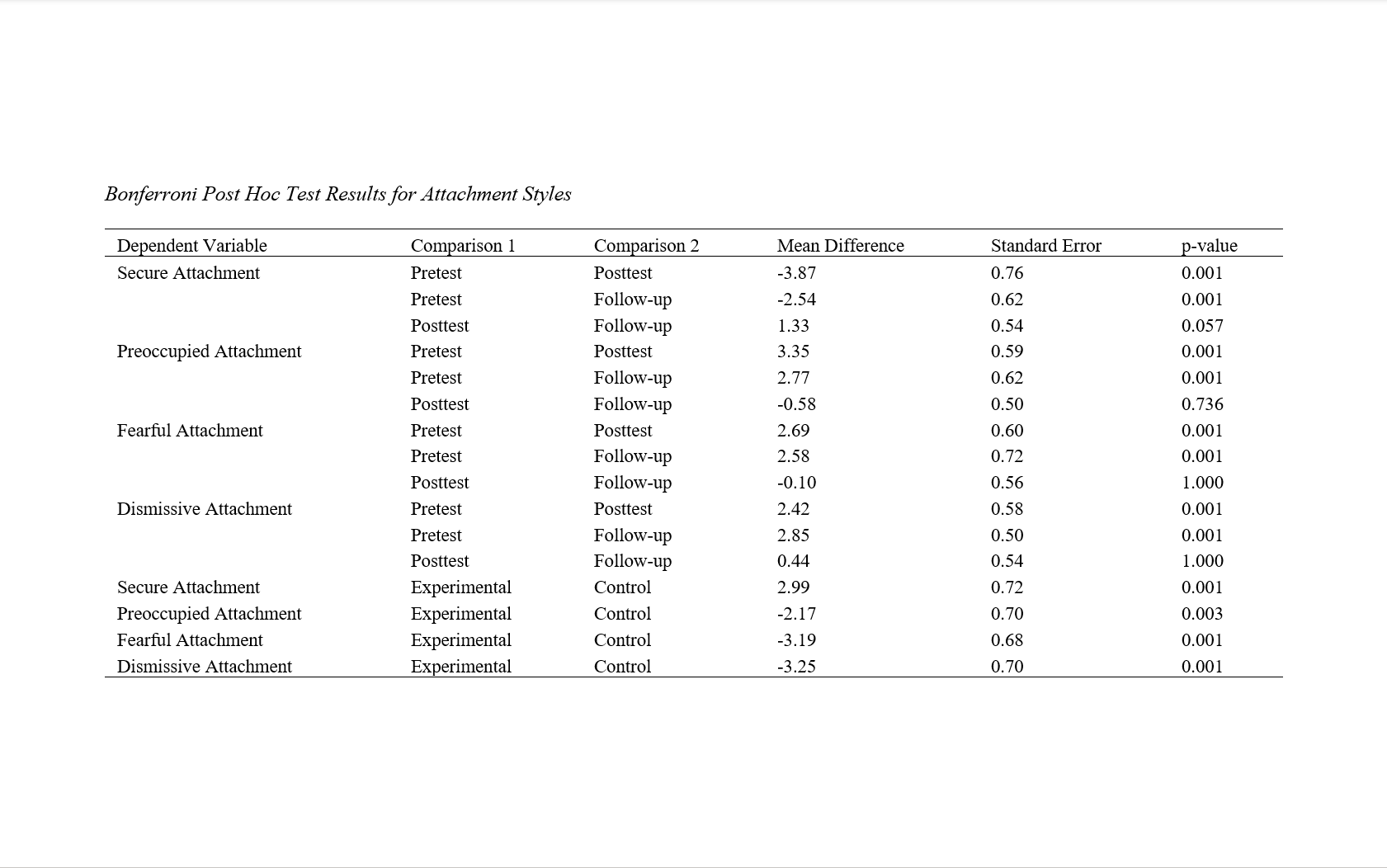Effectiveness of an Integrated Group Intervention Based on Mentalization and a Training Package for Building a Secure Bond on Insecure Attachment Styles in Spouses
Keywords:
Mentalization, Building a Secure Bond, Attachment StylesAbstract
Objective: The present study aimed to investigate the effectiveness of an integrated intervention combining mentalization and the training package for building a secure bond on attachment styles in spouses with insecure attachment styles.
Method: This quasi-experimental study employed a pretest-posttest design with a control group and a two-month follow-up. The statistical population consisted of couples who had sought services from counseling and psychology centers in northern Tehran under the supervision of the Iranian Organization of Psychology and Counseling in 2022 and who were in the first five years of their marital life. Based on the inclusion criteria, 24 couples with insecure attachment styles were identified and randomly assigned to either the experimental or control group. The intervention was implemented over 12 sessions, with weekly two-hour training sessions for the experimental group. Data were collected using the Attachment Styles Questionnaire (Bartholomew & Horowitz, 1991). The data were analyzed using mixed ANOVA with one within-subject factor (time) and one between-subject factor (experimental and control groups), Bonferroni post hoc test, and SPSS software version 25.
Findings: The findings of this study indicated that the integrated intervention of mentalization and the training package for building a secure bond had a significant and positive effect on the attachment styles of couples (p < .01), and the effects were sustained after a two-month follow-up.
Conclusion: Based on the obtained results, couples' therapists can use the integrated intervention of mentalization and building a secure bond to optimize attachment styles in couples with insecure attachment styles who are in the early years of their marital life.
Downloads

Downloads
Additional Files
Published
Submitted
Revised
Accepted
Issue
Section
License
Copyright (c) 2024 Bita Tavakkoli (Author); Khadijeh Abolmaali Alhosseini (Corresponding Author); Zahra Sadat Pour Seyyed Aghaei (Author)

This work is licensed under a Creative Commons Attribution-NonCommercial 4.0 International License.




















